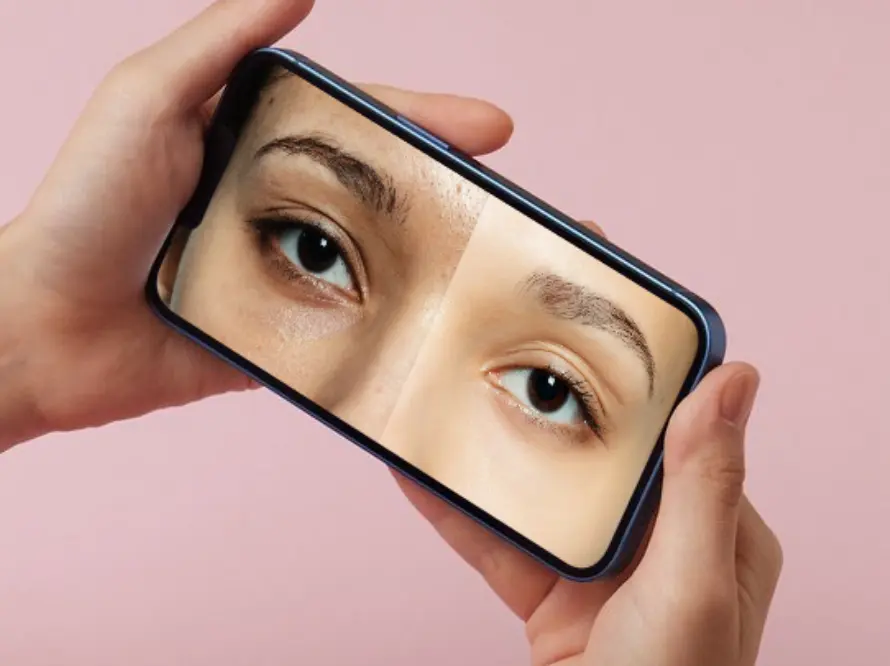Save Face explores the historical context of the ban on remote prescribing by health regulators and offers a timely reminder that precedent remains unchanged today.
Discussions surrounding the remote prescribing of medicines like botulinum toxins within the aesthetic specialty have been brought to the forefront again, following the recent communication from the Nursing & Midwifery Council (NMC), asserting the need for face-to-face consultations.
Unfortunately, there is a widespread false perception that this is ‘new’ news and only applies to the nursing fraternity. Those of us with much longer memories know this to be untrue. Health regulators, across the board, have condemned the practice of remote prescribing of cosmetic medical products for almost two decades.
The sector is incredibly fluid, with a seemingly continuous influx of new practitioner entrants who may not be wholly familiar with applicable standards, which are somewhat nuanced compared to primary care. Similarly, the various Primary Statutory Regulatory Boards’ (PSRBs) websites have been redesigned numerous times, often losing their historical archives, which can make ‘putting your hands on’ relevant best practice guidance materials more challenging. Although that is never a credible excuse for ignorance of your registration governance.
The NMC’s April announcement reaffirms its stance on remote prescribing in aesthetic practice, but this is not the first time they have been explicit on the topic. Clarifying the narrative, it brings them back in line with other PSRBs, including the General Medical Council (GMC), the General Dental Council (GDC), and the General Pharmaceutical Council (GPhC), who have all published statements outlawing remote prescribing in the aesthetics setting over the years.
The Nursing & Midwifery Council (NMC)
Advice and guidance publications, which supported the NMC’s Standards for Medicines Management, for nurses and midwives who prescribe or administer Botox® and other injectable cosmetic medicinal products, began to appear from 2008.
In 2011, their ongoing position stated, “…remote prescriptions or directions to administer should only be used in exceptional circumstances, and not as a routine means to administer injectable cosmetic medicinal products, such as botulinum toxin (Botox®)”. Nurses and midwives were reminded that they were “…personally responsible for ensuring they apply the relevant standards and laws to their specific area of practice and risk their registration and livelihood if they do not”.[i],[ii]
This long-standing position became a victim of online archiving, disappearing from the NMC website for a protracted time, culminating in stakeholder lobbying and a renewed consultation exercise during 2024.[iii]
Effective from 1st June 2025, the NMC has issued a rejuvenated position statement consistent with the requirements of the Royal Pharmaceutical Society (RPS) Prescribing Competency Framework and the high-level principles for good practice in remote consultations and prescribing.[iv]
Supporting safe prescribing decisions, the NMC has declared that,“…independent nurse and midwife prescribers must carry out a face-to-face consultation and undertake and document an appropriate clinical assessment of the intended recipient of the medicine before they prescribe any products used for any elective non-surgical cosmetic procedure. It is not appropriate to prescribe medicinal products for these purposes by remote methods such as telephone, email, online, video or communication via a third party. This applies to the initial consultation and any subsequent consultations and follow-ups.
Any nursing or midwifery professional who chooses to provide elective non-surgical cosmetic procedures are expected to adhere to professional standards at all times. This includes making sure they are appropriately educated and trained, competent and have appropriate indemnity cover. The prescriber is responsible for obtaining informed consent from the intended recipient, assessing the suitability of a procedure for each individual and explaining the risks and benefits of a procedure to them.
When a prescriber delegates the administration of a medicine as part of a non-surgical cosmetic procedure, they must ensure that the person they delegate to is suitably qualified and be satisfied that they are competent and proficient in administering the medicine and carry out the procedure at suitable premises.
Prescribers remain responsible at all times for the overall oversight and care of each individual, including assessing outcomes and managing any adverse incidents or complications.”[v]
The General Medical Council (GMC)
The GMC openly published their prohibition of remote prescribing of botulinum toxin products by telephone, email, video-link or fax when it was pushed to the forefront following an undercover operation in July 2012 to expose a well-known doctor within the aesthetic sector. The former doctor was found to be remotely prescribing botulinum toxin, en masse, via his training company for aesthetic nurse trainees and was struck off the GMC register.[vi]
Since then, doctors have been warned that they are required to have face-to-face consultations with patients before prescribing the drug to ensure they fully understand the patient’s medical history and reasons for wanting the treatment and can perform a physical examination of the patient. Doctors have been counselled for over a decade that if they prescribe Botox or similar products (brands) remotely, they will be putting their GMC registration at risk.[vii]
Professional standards guidance for GMC-registered doctors who offer cosmetic interventions, updated in 2016, continues to make this clear, stating, “You must carry out a physical examination of patients before prescribing injectable cosmetic medicines. You must not therefore prescribe these medicines by telephone, video link, online or at the request of others for patients you have not examined.”
The guidance makes it clear that responsibility for seeking consent for cosmetic interventions lies with the registered doctor, even when delegating treatment delivery.
If prescribing for another practitioner, there is a requirement to “…make sure that anyone you delegate to – (anyone a medical professional works with, in and outside their team, whether or not they are also medical professionals) - has the necessary knowledge, skills and training and is appropriately supervised.”[viii] Similarly, “When you delegate care you are accountable for your decision to delegate, the steps you take to make sure patient safety isn’t compromised, the instructions you give, and the overall management of a patient if you’re the responsible clinician.”[ix]
The General Dental Council (GDC)
The GDC initially published a statement to its members on remote prescribing of injectable cosmetic medicinal products in the summer of 2011. This followed concerns that some registrants may have been using remote prescribing inappropriately, after reports were logged with The Independent Healthcare Advisory Service (IHAS).[x] The statement said, “Remote prescribing should not be routinely used to facilitate treatment, or in the provision of non-surgical cosmetic procedures such as the prescription or administration of injectable cosmetic medicinal products”.[xi]
Further publications noted, “Remote prescribing of Botox and other non-surgical cosmetic procedures (for example via telephone, email, or a website) - Remote prescribing shall not be used in the provision of non-surgical cosmetic procedures such as the prescription or administration of Botox or injectable cosmetic medicinal products.”[xii]
Standards and guidance on prescribing medicines for GDC registrants, published in 2013, reiterate their continued stance and differentiate between GDC registrants. It notes, “Dentists are the only registrants who can prescribe Botox™. Dentists must not remote prescribe (for example, via telephone, email, or a website) for non-surgical cosmetic procedures, such as the prescription or administration of Botox or injectable cosmetic medicinal products.”[xiii]
They also make it clear that, although Dental Hygienists and Dental Therapists can administer Botox, if “they are trained, competent and indemnified to do so”, they are not prescribers.[xiv] Further explaining, “the administration of Botox is not the practice of dentistry, and so it does not appear in the GDC’s Scope of Practice document. Botox is a prescription-only medicine (POM) and needs to be prescribed by a registered doctor or dentist who has completed a full assessment of the patient. Hygienists and therapists cannot, therefore, carry out Botox treatment direct.”[xv]
The General Pharmaceutical Council (GPhC)
As the aesthetic sector has evolved, a growing number of independent prescribing pharmacists have entered the sphere, directly prescribing botulinum toxins and other non-surgical cosmetic medicinal products for their patients or as a prescription service, which has blurred the lines of remote prescribing.
GPhC in practice guidance for pharmacist prescribers was updated in April 2025 and included a focus specifically on prescribing non-surgical cosmetic products. They were reminded that if they prescribe, supply, and administer these products, they must have the appropriate training relevant to the products and the experience to prescribe safely, and must prescribe and administer them in line with good practice guidelines.
Importantly, the publication states that prescription and administration can occur, “…only after there has been a physical examination of the person. For this reason, it is not appropriate to carry out a remote consultation for non-surgical cosmetic products”.
Unlike other PSRBs, the GPhC explicitly defines appropriate practitioners for delegated administration and reminds them that they are still responsible for the ongoing oversight of the patient and the safe outcome of the treatment, including assessing outcomes, interventions (complications management), and reporting adverse incidents. Crucially, this delegation cannot be entrusted to lay practitioners.
“Pharmacist prescribers must make sure that anyone they delegate the administration of the products to is a healthcare professional with the appropriate training and skills to administer and carry out the procedure.” [xvi]
Summary
Let this be a gentle warning. If you are a registered doctor, prescribing nurse, dentist, or prescribing pharmacist and considering offering remote prescribing services for cosmetic medicinal products, you will be risking your PSRB registration. All scripts for prescription-only medicines like botulinum toxin or hyaluronidase, used in cosmetic practice, must follow a face-to-face, in-person consultation with the patient. The responsibility for the appropriate delegation of the administration also lies with you, and you will remain accountable for the patient’s welfare. It is vital to ascertain the appropriate qualifications, skills, and indemnities held by the person to whom you delegate, and whether such delegation is permitted by your medical indemnity insurer and/or PSRB.
References
[i] NMC: Press Release: New advice for Botox® nurses and midwives (01/04/2011) - https://web.archive.org/web/20110506020611/http://www.nmc-uk.org/Press-and-media/Latest-news/New-advice-for-Botox-nurses-and-midwives/ [Link available through Wayback Machine archive, sourced 16 June 2025]
[ii] NMC: Remote prescribing and injectable cosmetic medicinal products (Updated April 2011) - https://web.archive.org/web/20110505121951/http://www.nmc-uk.org/Nurses-and-midwives/Advice-by-topic/A/Advice/Remote-prescribing-and-injectable-cosmetic-medicinal-products/ [Link available through Wayback Machine archive, sourced 16 June 2025]
[iii] NMC: Presse Rlease: NMC seeks views on remote prescribing of non-surgical cosmetic medicines (29 Aug 2024) - https://www.nmc.org.uk/news/news-and-updates/nmc-seeks-views-on-remote-prescribing-of-non-surgical-cosmetic-medicines/
[iv] NMC to update position on remote prescribing of non-surgical cosmetic medicines - https://www.nmc.org.uk/news/news-and-updates/nmc-to-update-position-on-remote-prescribing-of-non-surgical-cosmetic-medicines/
[v] Useful information for prescribers: Answering your questions on prescribing qualifications, standards and practice. https://www.nmc.org.uk/standards/standards-for-post-registration/standards-for-prescribers/useful-information-for-prescribers/
[vi] BBC News: Botox prescriptions over phone or internet to be banned (9 July 2012) - https://www.bbc.co.uk/news/uk-england-london-18772674
[vii] Press Release - New GMC guidance - doctors must not remotely prescribe Botox (12 Jul 2012) - https://web.archive.org/web/20121115190743/http://www.gmc-uk.org/news/13595.asp [Link available through Wayback Machine archive, sourced 16 June 2025]
[viii] GMC: Guidance for doctors who offer cosmetic interventions - https://www.gmc-uk.org/-/media/documents/guidance-for-doctors-who-offer-cosmetic-interventions-210316-65254111.pdf
[ix] GMC: Professional Standards: Delegation and referral - https://www.gmc-uk.org/-/media/documents/gmc-guidance-for-doctors---delegation-and-referral_pdf-58834134.pdf
[x] MDDUS: No remote prescribing for Botox (11 Oct 2011) - https://www.mddus.com/resources/resource-library/news-digest/2011/october/no-remote-prescribing-of-botox
[xi] [Source link now longer archived or available] http://www.gdc-uk.org/governanceandcorporate/thecouncil/documents/item%2011%20-%20remote%20prescribing.pdf
[xii] GDC: Guidance on remote prescribing - https://web.archive.org/web/20160514054326/https://www.gdc-uk.org/dentalprofessionals/standards/documents/remote%20prescribing.pdf [Link available through Wayback Machine archive, sourced 16 June 2025]
[xiii] GDC: Guidance on prescribing medicines - https://www.gdc-uk.org/standards-guidance/standards-and-guidance/gdc-guidance-for-dental-professionals/guidance-on-prescribing-medicines
[xiv] GDC: Frequently asked questions - Can dental hygienists and dental therapists carry out Botox treatment direct? - https://www.gdc-uk.org/standards-guidance/standards-and-guidance/direct-access/lists/direct-access/86302527-6c41-4061-b151-9a459d941326
[xv] GDC: Guidance on Direct Access - https://www.gdc-uk.org/docs/default-source/information-standards-and-guidance/direct-access/direct-access-guidance2508ad9a2d0444e7aee2680906853135.pdf?sfvrsn=f45d8a83_10
[xvi] GPhC: In practice: Guidance for pharmacist prescribers - https://assets.pharmacyregulation.org/files/2025-04/in-practice-guidance-for-pharmacist-prescribers-updated-april-2025.pdf






